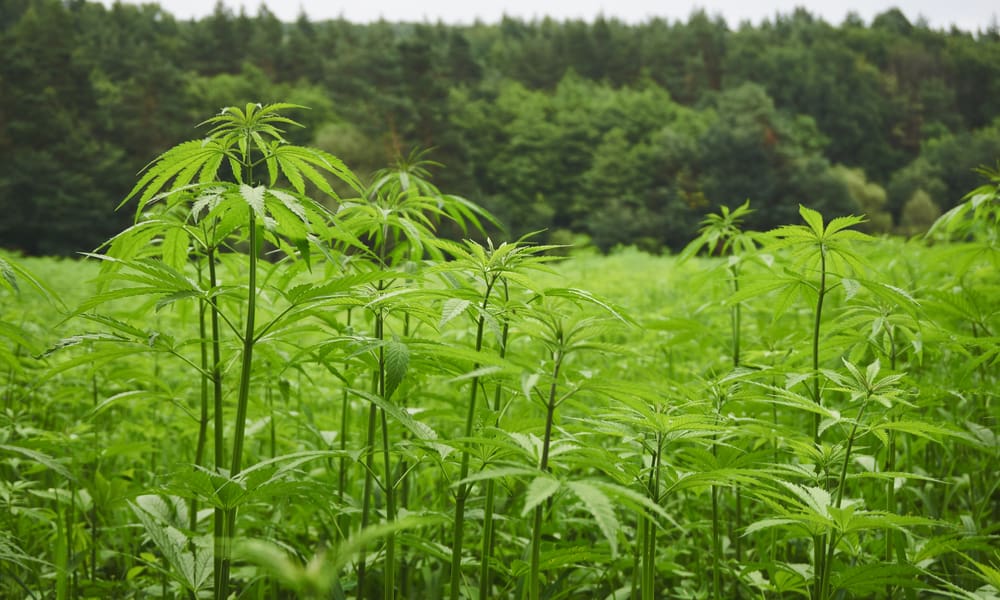
In a move that marks a major shift in U.S. agriculture and drug policy, House and Senate lawmakers have come to an agreement over the status of industrial hemp in H.R. 2, The Agriculture Improvement Act of 2018. Known as the 2018 Farm Bill, H.R. 2 includes far-reaching provisions that lift the ban on hemp, authorize hemp production and research and amend the Controlled Substances Act. Furthermore, the reconciled version of the Farm Bill paves the way for the federal regulation of hemp-derived cannabidiol (CBD) extracts. For hemp CBD consumers, that would mean both better product consistency and quality and an end to the legal ambiguity of hemp CBD.
Congress Lifts Hundred-Year-Old Prohibition on Commercial Hemp
Senator Mitch McConnell (R-Ky.) has consistently opposed the legalization of cannabis. But in Congress, McConnell has been nothing short of a champion of industrial hemp. “It is a different plant,” McConnell told reporters back in May. “It has an illicit cousin which I choose not to embrace.”
Yet the longest-serving Republic Senator in the history of the U.S. has fully embraced industrial hemp. Already back in 2014, McConnell led the effort to add hemp-related provisions to that year’s Farm Bill. Those provisions allowed states to research hemp and set up cultivation programs without requiring federal approval. Today, a majority of U.S. states have such programs.
This year’s Farm Bill, however, goes much further, changing federal law on industrial and commercial hemp and, remarkably, introducing the first-ever changes to the Controlled Substances Act of 1970. The full text of the reconciled version of H.R. 2 addresses hemp in a number of key sections. Here’s a breakdown.
In the first place, the bill authorizes hemp as a supplemental and alternative crop, allowing federal agencies to assess the economic viability of its production and sale. The Farm Bill also authorizes, at the federal level, multi-faceted research into hemp production. As a federal law, the bill even permits the interstate commerce of hemp, clearing up concerns about traveling with or transporting hemp CBD products.
2018 Farm Bill Exempts Hemp from Controlled Substances Act
Perhaps the most striking element of the Farm Bill, however, is how it amends the Controlled Substances Act. Since 1970, hemp has been listed as a Schedule I controlled substance. But H.R. 2 would exempt commercial hemp from the Schedule I classification, so long as products meet one requirement. Hemp products must contain no more than 0.3 percent of delta-9-tetrahydrocannabinol, aka THC, by dry weight.
Several key consequences stem from this change. First, it effectively lifts the prohibition on all the other cannabinoids that can be sourced from hemp, like CBDV, CBN, CBG. Research continues to demonstrate the immense therapeutic potential of such rare cannabinoids. Under the Farm Bill’s provisions, any part of the hemp plant, from its seeds to its extracts, acids, salts, and isomers are exempt from the Controlled Substances Act.
What the 2018 Farm Bill Means for Hemp CBD Consumers
While obviously a major win for the hemp industry, the 2018 Farm Bill also means consumers can look forward to broader, safer access to hemp CBD products. Despite the state-legal programs that have authorized the sale of hemp products, law enforcement agencies in several states have still pursued actions against CBD retailers and customers. When the 2018 Farm Bill takes effect, customers and retailers will no longer have to fear enforcement actions.
Furthermore, the end of federal hemp prohibition will undoubtedly lead to federal regulation of hemp products. Conceivably, hemp-derived CBD and other products could even get FDA approval. Currently, the hemp CBD market is largely unregulated. As a result, product quality and consistency varies dramatically across the market. In the future, CBD consumers should be able to look forward to better-regulated, higher-quality products. Congress will hold a final vote on the Farm Bill before the end of the year.











